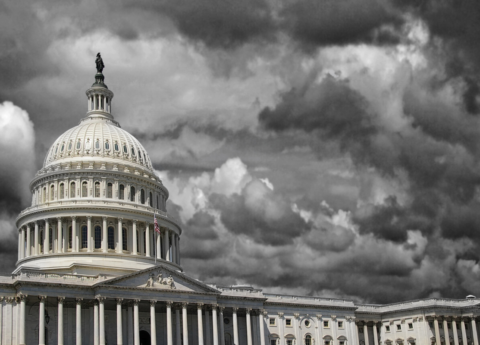While cleaning up tax breaks is the best way Kentucky can generate more revenue for needed investments in infrastructure, last year the legislature streamlined the process of contracting with private entities for funding. HB 309, passed in the 2016 session of the Kentucky General Assembly, gives state and local governments greater flexibility in securing public-private partnerships (P3s) which enlist private investors for the financing, construction, operation, and/or maintenance of infrastructure projects such as highways, bridges, parks and sidewalks.
While the notion of well-financed investors may make P3s sound enticing, there are complex and costly risks associated with handing over control of revenue and public structures. Those risks should be taken into account and managed as Kentucky moves more in this direction.
Complex Risks
It’s important to remember that private, for-profit entities don’t enter P3s simply to assist governments by providing needed infrastructure – they seek to gain a return on the capital they invest. The experience of other states and cities shows that can be at the expense of the public interest. For example, contracts can be written in ways that require the public to chip in to make sure private companies benefit. In Chicago’s P3 parking meter project, contract provisions require the city government to reimburse the private investor when events like parades or maintenance puts meters out of service. Similarly, a toll road project in Indiana gave operating authority to private investors in 2006. In 2008, when flooding caused a separate highway to close, tolls were waived on the privatized road to provide motorists an alternate route. Due to terms of the contract, Indiana paid $508,000 in public funds to compensate the private investors.
And while proponents of privatization often suggest that private partners provide superior delivery of goods and services, the experience of many states and localities shows otherwise. One of the best, recent examples comes from the southern toll road portion of Texas Highway 130. Largely as a result of overoptimistic traffic projections and poor design, in March 2016, the more than 10 private firms involved in the deal filed for bankruptcy with $1.6 billion in debt, leaving the state also to clean up widespread pavement defects and drainage and flooding problems for local residents.
Generally, lower income residents bear a disproportional share of the cost of privatization. Strong public investments in the goods and services that strengthen communities provide access for all individuals and families. But privatization can worsen inequality by leading to new and higher existing user fees which make up a larger share of low-income residents’ income and limit their access to its use; lower job quality for the workforce providing those goods and services – including for construction workers, but typically a more female and minority workforce; and by resulting in some communities receiving investments where a profit is more likely while others are left behind.
P3s May Deepen Kentucky’s Infrastructural Challenges
One often-mentioned potential usage of P3s in Kentucky is in the state parks. Due to decades of underfunding, parks have seen a steady deterioration in their lodges and other facilities (deep challenges that the $18 million bump this budget cycle will only begin to chip away at). Even prior to the passage of HB 309, companies had expressed interest in investing in the ailing parks, according to Secretary Don Parkinson of Tourism, Parks and Heritage. Specifics of the proposed contracts would allow for state retention of title and property, while hotel and restaurant companies would manage the parks.
A potential risk, however, is that private companies may offer lower wages in the parks to reduce labor costs, which can harm local economies when workers have less money to spend. Also, considering that Kentucky state parks provide residents as well as visitors with access to our state’s natural beauty and a place to vacation, there is a concern that private entities may raise lodging, dining and recreational prices above what many local people can afford.
These same concerns and more apply to the potential usage of P3s on roads and bridges, water systems and other public goods that all communities need to thrive.
How to Protect the Public Interest
With the likelihood of more P3s in Kentucky, state and local leaders remain responsible for vigilantly protecting the public interest in these partnerships from conception to completion. To begin with, governments considering P3s as a way to address needs should engage in comprehensive fiscal as well as social and economic impact analyses. Since they are ultimately paying a higher cost of capital through private financing schemes, it is critical that elected leaders demand the resulting projects provide community benefits. Careful contract development would include, for example:
- Fair wages, benefits and job training;
- Targeted hire of local and underrepresented workers;
- User fee schedules that preserve access;
- Explicit construction and maintenance standards;
- Frequent and accurate reporting;
- Rigorous oversight by government officials and a board of community stakeholders;
- Clear consequences for non-compliance.
Private investment in public projects and programs can under certain conditions create opportunities for both communities and investors to work together, but strategic planning and scrutiny at every stage of the partnership are essential. With the myriad risks of P3s, public funding is often a more prudent solution for the public interest. Cleaning up the tax code of breaks that disproportionately favor those at the top would provide more reliable revenue to invest in these vital projects.



